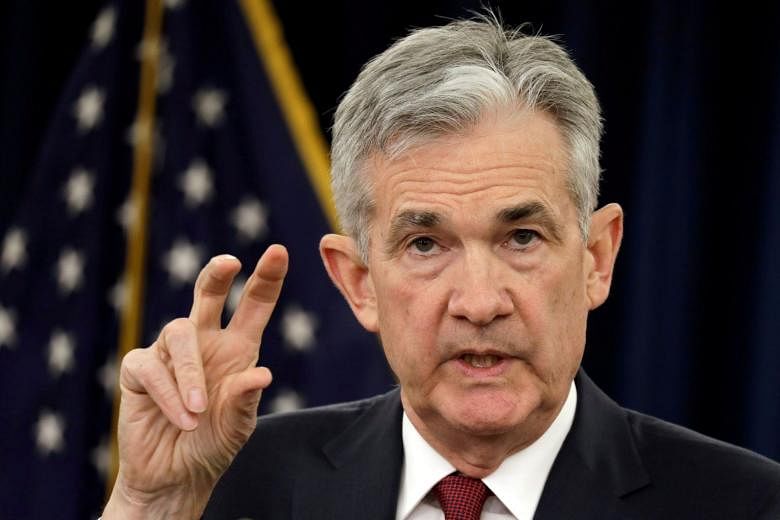WASHINGTON (WASHINGTON POST) - Federal Reserve Chairman Jerome Powell said the central bank can be patient as it assesses risks to a US economy and will adjust policy quickly if needed, but made clear he would not resign if President Donald Trump asked him to step aside.
"With the muted inflation readings that we've seen, we will be patient as we watch to see how the economy evolves," Powell said on Friday on a panel with his predecessors Janet Yellen and Ben Bernanke at the American Economic Association's annual meeting in Atlanta.
"We will be prepared to adjust policy quickly and flexibly and to use all of our tools to support the economy should that be appropriate to keep the expansion on track," he said, adding "there is no pre-set path for policy."
US stocks extended gains as the Fed chairman sounded like he sees scope to wait and see how the economy performs before raising interest rates again.
Powell's Fed hiked rates four times last year and projections from its Dec 19 meeting show officials expect two more hikes in 2019.
Sliding equity prices, weakness abroad and mixed economic data at home have prompted calls for the Fed to put rates on hold, but the US labour market remains red-hot.
Data released earlier on Friday showed US employers added the most workers in 10 months as wage gains accelerated.
Powell called the employment figures a "very strong report" and showed no concern about the advance in wages.
"Average hourly earnings moved up and that's quite welcome and also for me at this time does not raise concerns about too-high inflation," he said.
While most of the economic data he has seen coming have been quite solid, Powell also made clear he was not ignoring signals from financial markets.
"You do have this difference between, on the one hand, strong data, and some tension between financial markets that are signalling concern and downside risks," he said.
In response to questions, Powell also signalled a willingness to include changes to the Fed's gradual run-off of its balance-sheet in any review of monetary policy.
Trump has criticised the Fed chief for raising rates, and Bloomberg News reported on Dec 21 that the president had discussed firing Powell.
The Fed chairman, responding to a question about what he would do if Trump asked him to step down, said he would not resign.
Fed watchers have said that the bar is very high for the president to remove Powell "for cause" as the law appears to require, provided Powell decides to fight the dismissal in court.
Powell and his colleagues at the US central bank are weighing conflicting signals on the US economy as they try to ensure that the Fed achieves its congressional mandate of low, stable inflation and full employment over the long term.
Markets have gyrated in recent months and manufacturing gauges have slowed as weakening global growth and a trade spat between the US and China deepen uncertainty.
Consumer sentiment indexes have also begun weakening, and housing figures showed deceleration throughout much of 2018.
Despite that gloomy backdrop, the Fed has been close to achieving its inflation goal of 2 per cent.
Price gains hovered right around there for much of 2018, though the Fed's preferred index has dipped to 1.8 per cent in November.
The Fed is also below its estimates of full employment.
US nonfarm payrolls increased by 312,000 in December, easily topping all forecasts.
Average hourly earnings advanced 3.2 per cent from a year earlier, matching the fastest pace since 2009.
And the jobless rate rose from a five-decade low to 3.9 per cent, reflecting more people actively seeking work.
"We have unemployment remaining below 4 per cent for nine months now, one of the longest periods since the mid-1960s," Powell said.

